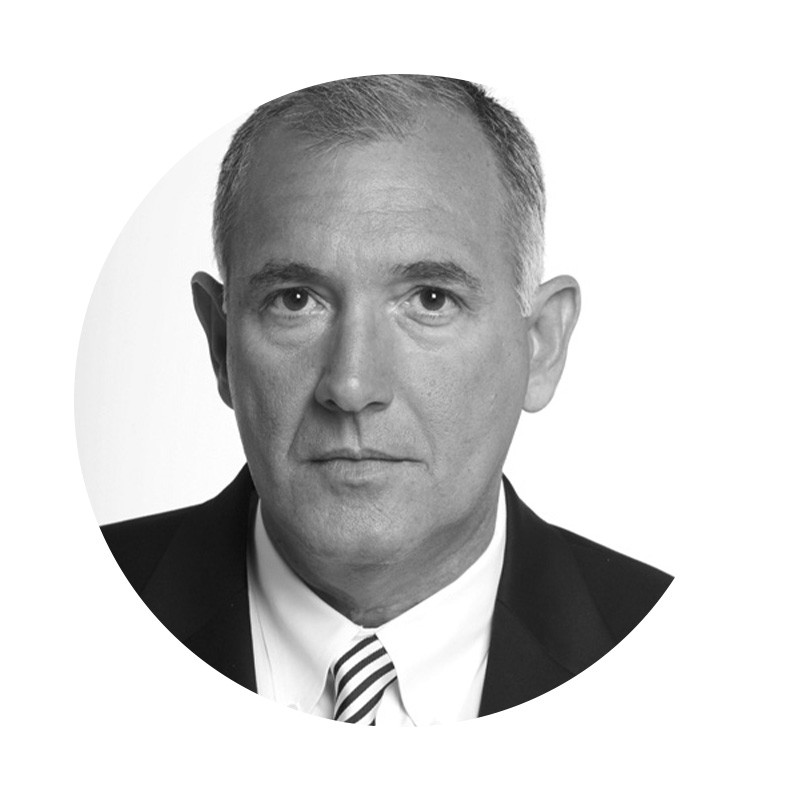What It Takes To Be A Leader

Is working for the FBI just like it is in the movies, Joe?
Nothing like it. With most criminals, you can’t go up to them and ask them what they’re up to, so the job’s about observing behaviour. You’re a paid observer.
Who were you observing?
I started out working criminal matters, observing criminal behaviour on Indian reservations, where the FBI is the investigating authority. Then I was a spycatcher. I was in the national security division, which covered any threat to the United States, and our primary interest was espionage. Within that division, I was part of a specialised counterterrorism unit focused on behavioural assessment. We were not just covering espionage activity and tradecraft; we looked more closely at the individuals involved. It’s very easy for a spy to say, well, you don’t have any evidence and shut themselves down. Faced with that, we had to ask ourselves: how can we understand them? How can we get inside their heads? How should we interview them? How can we break down their resistance within legal means?
And did you find answers to those questions?
We found that, if you really want to determine whether someone is really involved in something, or whether there are other people involved who they are not giving up, non-verbal communication is the key to finding out. That insight led me to become the FBI’s sole expert on body language. That’s the job I eventually did for 25 years.
So you were a pioneer, Joe?
Yes, in a way. But that’s not to pat myself on the head – because it’s almost embarrassing this wasn’t pioneered before me. When I came into the FBI in the 70s, they were still teaching things with no scientific basis. Very few books had been written on body language and a lot of those that had been written were simply wrong. I remember hearing that if somebody touched their nose or covered their mouth when they talked, they were lying. There’s no science behind that. My job therefore was to study everything I could and get myself to a level where we could use my insights both strategically and tactically.
What did you discover then?
One of the things I found was that the study of non-verbal communication draws from many fields. People think it's all psychology. It's not: it draws from anthropology, ethology (the science of animal behaviour), sociology and communication science. While everyone was looking at human communication from a different perspective, I took it upon myself to bring all of these things together and ask: how do I ensnare all of this information so that I can put it to use in the wonderful laboratory of life? At the time, researchers were carrying out research on white college students. The results of their experiments were a world away from what we were finding as we interviewed bank robbers, psychopaths, mafia members and KGB agents – as well as the victims and witnesses of crime, of course.
Has the Bureau put your work to good use?
What I learned was fed into the behavioural analysis programme I was part of. It helped agents understand who suspects really were, what to anticipate from them and so forth. Towards the end of my career, various people in the FBI came to me and asked me what I was going to do with everything I’d learnt – was it going to disappear when I retired? That’s what started me on the path of writing. I don’t think any of my English teachers in school would have expected me to become a writer, but I’d done over 13,000 interviews for the FBI and kept notebooks all the way along.
Your latest book has an interesting focus. Tell us about it…
I think it’s my 14th book. In the past I’ve written about body language, behaviour and advanced interview techniques. I’ve looked at how to spot a person being deceptive or casing a joint or doing something else criminal. The new one is really an amalgamation of everything I learnt being a sort of ethologist out in the field. In the course of all of those interviews and all of that study, including looking back through history, I learned that exceptional people – leaders – have certain things in common. As an FBI agent, I was primarily looking at bad behaviours, of course, but just by talking to scores and scores of people – perpetrators, victims, witnesses – I began to see patterns.
You eventually identified five leadership traits that make an exceptional person. Before we get into them, can these things really be learned?
No question all of these things can be learned. We now know that the human brain is very plastic – it’s good at changing, adapting and retraining. In the book, I talk about ‘myelination’. For example, I swim every day and every day I see swimmers who really don't know what they're doing. They have a terrible stroke, their arms in the wrong position, their hands in the wrong position and so on. They’ve ‘myelinated’ the wrong way to do things. But then I also see a young person being coached and learning to myelinate the proper way to do things. All of a sudden, this kid is like a torpedo in the water. Essentially, we have the ability to create very robust systems around bad behaviours, but we can also recreate them around good behaviours. And we can retrain ourselves at any age. It all depends on who we want to model ourselves on.
Any final words of encouragement before we jump into the five traits?
Whenever I give a speech, I always ask the audience: who wants to be average? No one wants to be average. Who wants to be exceptional? Everybody raises their hand. Then I ask: how do you become exceptional? Everybody just looks at each other, because no university teaches you how to be exceptional. This is something you have to teach yourself. The great thing is, though, there’s no cost to any of this! All of my experience has taught me that learning the things I talk about is very effective – and it costs nothing.
JOE NAVARRO’S 5 STEPS TO BECOMING AN EXCEPTIONAL LEADER
-
Self-Mastery
Exceptional people are not perfect. What they have is a keen ability to always be in a conversation with themselves: Who am I? What am I? Can I improve on what I do each day? Do I command my emotions or do they command me? Do I let other things command me? By being honest with themselves, they give themselves a sort of self-apprenticeship. They learn to take control of external factors as well as their emotions. This is how someone like Benjamin Franklin can come from nowhere – aged 17 he arrived in Philadelphia from Boston with a dollar in his pocket – and become exceptional. He looked at what successful people did and taught himself these things, learning to read and write, how to dress a certain way, and eventually impressing the state governor and going to England to further himself.
- Observation
Exceptional people are great observers. When I was working out West in the States, I would run into farmers who could tell me exactly what was going on with the weather, the vegetation, their land and every single one of their animals. They had a mastery of their environment, driven by their ability to observe. They would know a horse needed its hooves cleaning because it was moving ever so slightly slowly. They were great observers because they could see the needs, wants and desires of others. I’ve often seen this same ability in grandmothers, who know everything about their families. I don’t always see it in designated leaders – they might have a grand vision for their organisation, but are they attentive to everyone around them? Only the exceptional ones are.
- Communication
Exceptional people can communicate effectively – verbally and non-verbally. They can communicate what’s essential (information, skills and so on) but they can also communicate to get along with people. This is the ability to say – or do – the right thing at the right time. The hug, the helping hand across the street, the kiss on the forehead – these are so important I think there should be a Nobel prize for non-verbal communication.
- Action
Exceptional people can act quickly and in the interests of everyone. Because they have mastery over themselves, because they have great observation skills and because they communicate so effectively, there is no hesitation. They can take beneficial action more dynamically and effectively. I teach future leaders at Harvard once a year and this is what I talk about. We communicate through our actions. The quicker we communicate, the quicker we take action. The quicker we take action, the more positively people will view us – because decisive, positive action is not something you see a lot of. It stands out.
- Psychological Comfort
Exceptional people understand that we all crave psychological comfort. Most people don’t understand this – they think we seek perfection. We don’t. Think of babies: when a dummy’s not available, a thumb will do; when the thumb’s not available, a teddy bear will do; when the teddy’s not there, its mother’s dress will do. We are the same. Studies have shown that, at night, drivers will go to the petrol station that has more lights on. Because it feels safer. The ability to provide psychological comfort in this day and age is what the book really delves into – and what really sets exceptional people apart.
/https%3A%2F%2Fslman.com%2Fsites%2Fslman%2Ffiles%2Farticles%2F2021%2F09%2Fbeexceptionaljacketimage.jpg?itok=4PZxAgfZ)
DISCLAIMER: We endeavour to always credit the correct original source of every image we use. If you think a credit may be incorrect, please contact us at [email protected].


